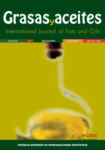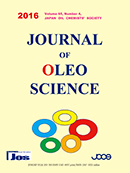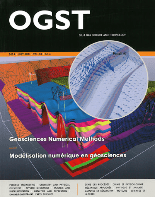
Processes of Petrochemistry and Oil Refining
Scope & Guideline
Fostering Collaboration in Petrochemical Advancements
Introduction
Aims and Scopes
- Petrochemical Process Optimization:
Research on optimizing various petrochemical processes, including catalytic cracking, hydrotreatment, and alkylation, to enhance yield and efficiency. - Synthesis of Petrochemical Products:
Development and investigation of new catalysts and methods for synthesizing petrochemical products, focusing on compounds like surfactants, lubricants, and additives. - Environmental Impact and Sustainability:
Studies addressing the environmental implications of petrochemical production and refining, including waste management, pollution control, and eco-friendly technologies. - Chemical Characterization and Analysis:
Comprehensive analyses of chemical properties of petrochemical products, including spectroscopic studies and modeling of chemical processes. - Innovative Materials and Applications:
Exploration of new materials derived from petrochemicals, including biopolymers and nanocomposites, and their applications in various industries.
Trending and Emerging
- Nanotechnology in Petrochemistry:
There is a notable increase in research exploring the use of nanomaterials and nanotechnology in enhancing oil recovery, refining processes, and environmental remediation. - Sustainable and Eco-friendly Practices:
Emerging focus on sustainable practices within petrochemical processes, including the development of biodegradable products and waste reduction strategies. - Advanced Catalysis:
Growing interest in novel catalytic systems, including metal-organic frameworks and hybrid catalysts, aimed at improving efficiency and selectivity in petrochemical reactions. - Biobased Petrochemicals:
Research on the synthesis and application of biobased alternatives to traditional petrochemicals is gaining traction, reflecting a shift towards greener chemistry. - Digitalization and Process Automation:
The integration of digital technologies and automation in petrochemical processes is increasingly emphasized, highlighting the industry's move towards smart manufacturing and data-driven decision-making.
Declining or Waning
- Traditional Oil Recovery Techniques:
Research on conventional oil extraction methods has decreased, likely due to a growing interest in enhanced oil recovery techniques and the application of nanotechnology. - Basic Oil Refining Processes:
There is less emphasis on fundamental studies of oil refining processes, with more focus shifting to advanced and innovative refining techniques. - Corrosion Inhibitor Research:
While still relevant, studies specifically targeting corrosion inhibitors have become less frequent, possibly due to the diversification of research into broader applications and materials.
Similar Journals

Catalysis in Industry
Unleashing the potential of catalysis in industry.Catalysis in Industry, published by MAIK NAUKA-INTERPERIODICA, is a pivotal journal in the field of chemical engineering and catalysis. With its ISSN 2070-0504 and E-ISSN 2070-0555, this journal has been dedicated to advancing the understanding and application of catalytic processes in industrial settings since its inception in 2010. Despite its Q4 ranking in the category of Catalysis as of 2023 and a Scopus rank of #61/68, the journal serves as a valuable platform for researchers and practitioners to disseminate innovative ideas and findings that contribute to the evolution of catalysis technology. Published in Russia, Catalysis in Industry aims to bridge the gap between academic research and industrial practice, providing Open Access options to facilitate widespread accessibility and encourage a collaborative approach to chemical engineering challenges. As the industry grapples with the demand for sustainable solutions and efficient processes, this journal remains a critical resource for the academic community, aspiring professionals, and students eager to deepen their knowledge in catalytic applications.

GRASAS Y ACEITES
Unlocking the potential of fats and oils for a healthier future.GRASAS Y ACEITES, published by the Consejo Superior Investigaciones Científicas (CSIC)Food Science and Organic Chemistry since 1991. Based in Madrid, Spain, this journal facilitates the dissemination of innovative research and cutting-edge discoveries pertaining to fats and oils, addressing both their nutritional properties and functional applications. The journal holds a commendable position within the academic community, ranking in the third quartile in both its categories as of 2023, and features a dedicated platform for dialogue among researchers, professionals, and students. By providing unhindered access to its publications, GRASAS Y ACEITES fosters a collaborative environment for advancing knowledge and understanding in its respective fields, making it an essential resource for those invested in food science and organic chemical research.

Nauka i Tehnologii Truboprovodnogo Transporta Nefti i Nefteproduktov-Science & Technologies-Oil and Oil Products Pipeline Transportation
Navigating the Future of Pipeline TechnologiesNauka i Tehnologii Truboprovodnogo Transporta Nefti i Nefteproduktov-Science & Technologies-Oil and Oil Products Pipeline Transportation is a specialized journal dedicated to advancing research and technology in the domain of oil and oil products pipeline transportation. Published by PIPELINE TRANSPORT INST LLC in the Russian Federation, this journal aims to provide a platform for the dissemination of innovative findings and practical applications within the fields of Civil and Structural Engineering, Ecology, Energy, and various engineering disciplines. Despite its current categorization in the Q4 quartile across multiple subjects, the journal is committed to fostering academic growth and collaboration among researchers and professionals. With a focus on the critical issues of pipeline technology, safety, and environmental impact, it serves as a crucial resource for those eager to contribute to the sustainable advancement of pipeline infrastructure and operations. Although not currently open access, the journal encourages wide readership and invites submissions that address contemporary challenges and solutions in pipeline transport. Researchers, professionals, and students alike will find valuable insights and developments through the pages of this journal.

Journal of Oil Palm Research
Exploring Innovations for a Greener Future in Oil Palm ResearchJournal of Oil Palm Research is a pivotal publication in the field of agricultural science, specifically focusing on the multifaceted aspects of oil palm cultivation, research advancements, and sustainability practices. Published by the MALAYSIAN PALM OIL BOARD, this journal serves as a significant platform for disseminating high-quality research and innovative solutions in oil palm agronomy, genetics, and socio-economic impacts, capturing the interest of researchers, industry professionals, and students alike. With an E-ISSN of 2811-4701, the journal is committed to presenting peer-reviewed articles that aim to enhance the understanding of oil palm's role in global agriculture and its contributions to environmental sustainability. The absence of a traditional access fee underscores its dedication to open access principles, fostering broader dissemination of knowledge. As the oil palm industry continues to evolve amidst environmental and market challenges, the Journal of Oil Palm Research remains essential for those dedicated to this field, offering insights that inform practice and policy.

Journal of Oleo Science
Championing Diverse Perspectives in Oleochemical ResearchJournal of Oleo Science, published by the Japan Oil Chemists Society, stands as a pivotal resource in the domains of chemical engineering, chemistry, and medicinal applications, with a robust commitment to advancing knowledge in oleochemical research and technology. With an ISSN of 1345-8957 and an E-ISSN of 1347-3352, this open-access journal has been accessible to a global audience since 2021, facilitating the dissemination of high-quality scholarly articles and fostering collaboration among researchers. The journal, which has converged its publication scope from 2001 to 2024, currently holds a respectable Q3 ranking across multiple categories, reflecting its impact in the academic sphere. With Scopus ranks highlighting its position in general chemistry and chemical engineering, the Journal of Oleo Science not only serves as an essential platform for the latest developments in oleo science but also encourages the exploration of innovative approaches to tackling industry challenges. Articles submitted to the journal are subjected to rigorous peer review, ensuring that only the most significant and scholarly work is presented. By championing diverse perspectives and research findings, this journal is an invaluable asset for students, professionals, and academics dedicated to advancing the fields of oleochemistry and beyond.

NORDIC PULP & PAPER RESEARCH JOURNAL
Shaping the Future of Sustainable Pulp and Paper PracticesNORDIC PULP & PAPER RESEARCH JOURNAL (ISSN: 0283-2631; E-ISSN: 2000-0669) is a prestigious academic journal published by WALTER DE GRUYTER GMBH, situated in the heart of Berlin, Germany. This journal serves as a critical platform for interdisciplinary research within the field of forestry and materials science, with a notable impact factor reflecting its influence in both academia and industry. As a Q2 ranked journal in Forestry and a Q3 ranked journal in Materials Science according to the latest Scopus rankings, it provides a vital resource for professionals, researchers, and students alike. The journal covers a range of topics related to pulp and paper technology, aiming to advance knowledge, encourage innovation, and foster collaboration within these sectors. With its comprehensive and robust editorial approach, the journal is committed to delivering high-quality research that drives the understanding and development of sustainable practices in pulp and paper production. Although it does not currently offer open access options, its rich archive of research dating back from 1986 through to 2024 continues to be a significant asset for those in the field.

Theoretical and Experimental Chemistry
Charting New Paths in Chemical ResearchTheoretical and Experimental Chemistry is a well-respected journal published by SPRINGER, focusing on both theoretical models and experimental methods within the field of chemistry. Operating since 1965, this journal has established a rich history of contributing to the scientific community, with a converged publication history extending through 2024. Although it currently holds a Q3 ranking in the Chemistry (miscellaneous) category and a Scopus Rank of #286 out of 408 in General Chemistry, its reputation continues to grow in the academic realm, as it provides a platform for both emerging and established researchers to share their findings. The journal does not operate on an open access model, yet it offers valuable insights into diverse chemical research that can benefit professionals and students alike. Located in New York, USA, at ONE NEW YORK PLAZA, SUITE 4600, the journal aims to bridge theoretical insights with experimental validation, fostering a comprehensive understanding of contemporary chemical challenges.

SPE Production & Operations
Connecting Research to Real-World Energy ChallengesSPE Production & Operations is a prestigious journal published by the Society of Petroleum Engineers (SPE), focusing on the critical domains of energy engineering and fuel technology. With an ISSN of 1930-1855 and an E-ISSN of 1930-1863, this journal has established itself as a vital resource in understanding the intricacies of production and operational practices within the petroleum sector. Its impressive Q2 ranking in both Energy Engineering and Power Technology, and Fuel Technology reflects its commitment to providing high-quality, impactful research. Spanning years from 2006 to 2023, SPE Production & Operations maintains an open access policy that ensures widespread dissemination of research findings, promoting knowledge sharing among industry professionals, researchers, and students alike. As the energy landscape continues to evolve, this journal serves as an essential platform for innovative research and discussion that addresses contemporary challenges and advancements in the field.

AFINIDAD
Connecting Scholars and Practitioners in Chemistry and Engineering.AFINIDAD is a distinguished academic journal published by the Assoc Antics Alumnes Inst Quimic Sarria - AIQS in Spain, focusing on the fields of Chemical Engineering and Chemistry. Since its inception in 1996, this journal has served as a platform for the dissemination of innovative research, current developments, and significant findings in these disciplines, thus facilitating knowledge sharing among researchers, professionals, and students. While currently categorized as Q4 in both Chemical Engineering and Chemistry as per the 2023 quartiles, AFINIDAD is committed to promoting quality scholarship that may contribute to the advancement of these fields. With a Scopus ranking placing it among the broader categories in Chemical Engineering and General Chemistry, this journal represents an essential resource for academic and industrial practitioners seeking to stay abreast of emerging trends and methodologies. Moreover, the absence of an open access option encourages institutions and individuals to invest in their academic growth through subscription-based access. Located in the vibrant city of Barcelona, AFINIDAD continues to uphold its mission to foster a collaborative and informative environment for the scientific community.

Oil & Gas Science and Technology-Revue d IFP Energies nouvelles
Driving the Future of Energy EngineeringOil & Gas Science and Technology - Revue d'IFP Energies nouvelles, published by EDP SCIENCES S A, is a distinguished journal in the field of energy science, specifically focusing on the latest advancements in oil and gas technologies. Since its transition to Open Access in 1997, the journal has been dedicated to disseminating high-quality research that addresses the challenges and innovations inherent in energy engineering and fuels. With an ISSN of 1294-4475 and an E-ISSN of 1953-8189, this journal holds a significant position in academic circles, reflecting its contributions to sustainable energy solutions. The journal's rankings in Scopus showcase its impact, particularly in the areas of Energy Engineering and Power Technology (Rank #105/224), Chemical Engineering (Rank #131/279), and Fuel Technology (Rank #51/100). As a pivotal resource for researchers, professionals, and students, it aims to foster knowledge exchange and promote innovative technologies essential for the ongoing evolution of the energy sector.